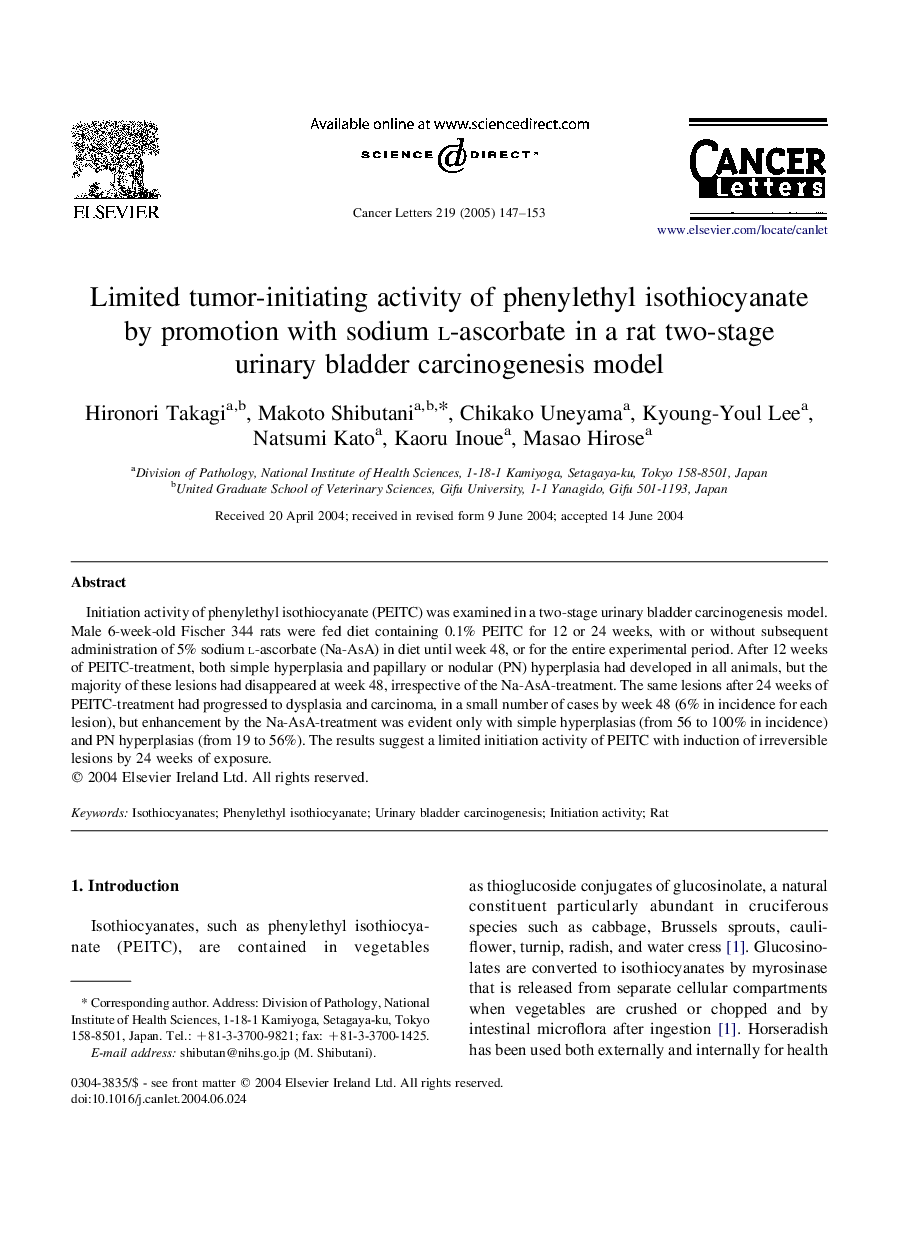| Article ID | Journal | Published Year | Pages | File Type |
|---|---|---|---|---|
| 10900410 | Cancer Letters | 2005 | 7 Pages |
Abstract
Initiation activity of phenylethyl isothiocyanate (PEITC) was examined in a two-stage urinary bladder carcinogenesis model. Male 6-week-old Fischer 344 rats were fed diet containing 0.1% PEITC for 12 or 24 weeks, with or without subsequent administration of 5% sodium l-ascorbate (Na-AsA) in diet until week 48, or for the entire experimental period. After 12 weeks of PEITC-treatment, both simple hyperplasia and papillary or nodular (PN) hyperplasia had developed in all animals, but the majority of these lesions had disappeared at week 48, irrespective of the Na-AsA-treatment. The same lesions after 24 weeks of PEITC-treatment had progressed to dysplasia and carcinoma, in a small number of cases by week 48 (6% in incidence for each lesion), but enhancement by the Na-AsA-treatment was evident only with simple hyperplasias (from 56 to 100% in incidence) and PN hyperplasias (from 19 to 56%). The results suggest a limited initiation activity of PEITC with induction of irreversible lesions by 24 weeks of exposure.
Keywords
Related Topics
Life Sciences
Biochemistry, Genetics and Molecular Biology
Cancer Research
Authors
Hironori Takagi, Makoto Shibutani, Chikako Uneyama, Kyoung-Youl Lee, Natsumi Kato, Kaoru Inoue, Masao Hirose,
